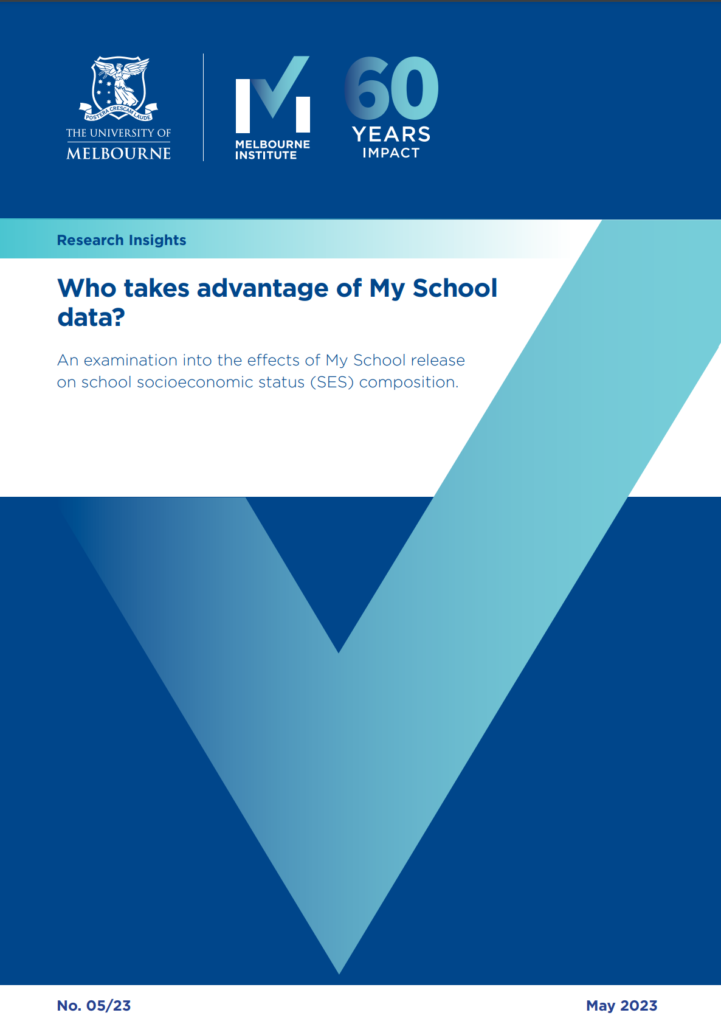School accountability data was the topic of discussion at a recent Life Course Centre Seminar Series presented by Associate Investigator Cain Polidano from the Melbourne Institute of Applied Economic and Social Research at the University of Melbourne.
Cain presented on a new study examining the impact of the introduction of school-level National Assessment Program – Literacy and Numeracy (NAPLAN) data via the MySchool website. His presentation coincided with the release of early study findings in a Melbourne Institute Research Insight, co-authored with Gigi Foster, Yashu Kalera, and Julie Moschion.
In opening his seminar presentation, Cain thanked the Life Course Centre for its seed funding that provided the catalyst for this study, one of the first to examine school socioeconomic status (SES) composition since the launch of My School in 2010. Cain said Australia, in comparison to other countries such as the USA, had been ‘late to the picture’ on systematically adopting school accountability information to help parents assess ‘good schools’.
The study results show increased enrolments in high-scoring public schools, driven by both high and low SES families switching away from private schools as they update their beliefs about the merits of public education. Enrolments at low-scoring public schools are unchanged because few of their competitor schools are high-scoring.
The results contradict a common belief that low SES families care less about academic achievement when choosing schools and allay fears that My School may have deepened disadvantage by prompting the flight of high SES families from low-scoring schools.
“We find no evidence that the introduction of My School has led to a greater concentration of low SES families in low-scoring schools. Instead, our results suggest that NAPLAN is meeting its intended purpose of helping parents to find good schools and dispel myths about the relative quality of public and private schools that persisted before NAPLAN, “ the Research Insight concludes.
“However, whether this ‘dose of accountability’ has motivated private and low-scoring public schools to improve the quality of their education (a secondary purpose) is unclear. Even though low-scoring public schools are not impacted by a loss of students, it is still possible that the public scrutiny from My Schools may have initiated change. Future research is needed.”
